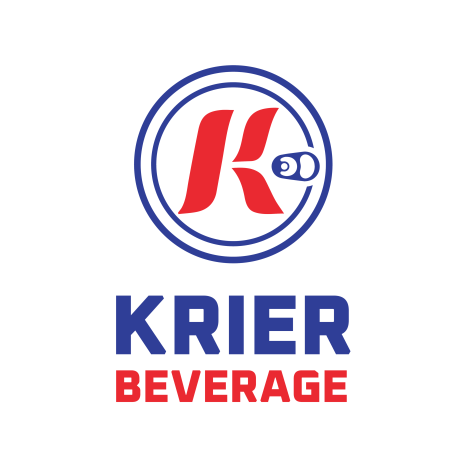This update includes FDA updates, FDA warning letters, USDA updates, lawsuits, and other articles of interest, including the appointment of Robert F. Kennedy Jr. as Health Secretary, the release of paused funding to U.S. farmers, testing of raw milk for avian flu, and more.
FDA Updates
Robert F. Kennedy Jr. Appointed Health Secretary Amid Mixed Reactions
February 17: Robert F. Kennedy Jr. was confirmed by the Senate to lead the Department of Health and Human Services. Kennedy, a controversial figure due to his promotion of various conspiracy theories, wants to tackle the chronic disease epidemic and reform the nation’s health care systems. Despite lacking a professional background in medicine, his stance against chemical additives and “Big Pharma” has received support from many, especially mothers. Sen. Mitch McConnell was the only Republican to oppose Kennedy’s confirmation, citing his history of spreading dangerous conspiracy theories. Conversely, food activist Vani Hari praised the nomination as a historic change for American health. Kennedy’s first major initiative, the President’s Make America Healthy Again Commission, will focus on investigating the root causes of America’s health crisis, particularly childhood chronic diseases. The commission is expected to produce an assessment within the first 100 days.
FDA Deputy Commissioner Resigns Amid Mass Firings
February 18: Jim Jones, deputy commissioner at the FDA, resigned after the “indiscriminate firing” of nearly 90 staff members. Jones criticized the Trump administration’s actions, saying it was “fruitless” to continue in his role. The firings included experts in infant formula safety and food ingredient reviewers. Jones became the FDA’s first deputy commissioner for human foods in 2023 and helped to establish the human foods program after the 2022 baby formula shortage. Jones’ resignation follows Robert F. Kennedy Jr.’s appointment as Health and Human Services secretary, a position that oversees the FDA. Kennedy has said that food companies and regulators are sickening Americans, and he has vowed to address what he calls corruption within the FDA.
FDA Delays Implementation of New “Healthy” Food Labeling Rule
February 24: The FDA postponed the enforcement of a new rule requiring food manufacturers to meet updated criteria to label their products as “healthy.” According to a FDA notice, the final rule, which was originally set to take effect on February 25, is now delayed until April 28. This delay follows an executive order by President Trump to freeze pending regulatory actions. The final rule, issued in December 2024, updated the definition of “healthy,” and aligns with the Dietary Guidelines for Americans and the latest scientific evidence supporting the updated Nutrition Facts label. To qualify as “healthy,” foods must include certain amounts from specified food groups such as fruits, vegetables, protein foods, dairy, and grains. Additionally, these foods must adhere to limits on saturated fat, sodium, and added sugars.
FDA Appoints Kyle Diamantas as Acting Deputy Commissioner for Human Foods
February 28: The USDA named Kyle Diamantas, a food and beverage attorney, as the new acting deputy commissioner for human foods. Diamantas replaces Jim Jones, who resigned in protest of staffing cuts. In his new role, Diamantas will oversee all FDA nutrition and food safety activities, including resource allocation, risk-prioritization, policy initiatives, and major response activities. He will also serve as a key liaison between the FDA, the Department of Health and Human Services, and The White House. More information can be found here.
FDA Stops Contaminated Clams at U.S. Borders
February 28: The FDA added several Chinese companies to its Import Alert 99-48, Detention without Physical Examination of Foods Due to Chemical Contamination, preventing the entry of processed clams contaminated with per- and polyfluoroalkyl substances (PFAS) into the U.S. market. The FDA detected elevated levels of PFAS, notably perfluorooctanoic acid (PFOA), in samples of clams from the companies. As the FDA continues sampling activities at the border, additional firms may be added to the import alert and shipments will be automatically held at the border without inspection. The FDA is also conducting seafood surveys and analyzing foods to better understand PFAS levels and ensure food safety. More information can be found here.
FDA Warning Letters
Foreign Supplier Verification Program (FSVP): The FDA issued a warning letter to three food importers for violations of FSVP regulations as they did not develop, maintain, and follow an FSVP.
A database of warning letters can be found here.
USDA Updates
USDA Confirms Ongoing Support for Global Nutrition and Education Initiatives
February 7: The U.S. Department of Agriculture (USDA) confirmed that the Foreign Agricultural Service is continuing activities for projects funded by the McGovern-Dole International Food for Education and Childhood Nutrition Program and the Food for Progress Program. More information can be found here.
Brooke Rollins Sworn in as New U.S. Secretary of Agriculture
February 13: Brooke Rollins was sworn in as the 33rd U.S. Secretary of Agriculture after being confirmed by the Senate with a 72-to-28 vote. Rollins expressed her commitment to serving American farmers, ranchers, and the broader agricultural community. She wants to revitalize rural America and ensure the continued excellence of U.S. agriculture. Rollins holds a degree in agricultural development from Texas A&M University, as well as a Juris Doctor from the University of Texas School of Law and brings extensive experience from her roles in the America First Policy Institute and the first Trump administration. More information can be found here.
USDA Secretary Highlights Key Challenges and Commitment to Rural Communities
February 13: In a letter addressed state, local, and tribal government partners, U.S. Secretary of Agriculture Brooke Rollins emphasized the USDA’s commitment to supporting rural communities. The letter highlighted several challenges facing the agricultural sector, including a significant trade deficit, a decline in the number of farms, increased production costs, and the impact of avian flu. The Secretary expressed a dedication to refocusing the USDA on its core mission of serving farmers and ranchers, ensuring food safety, and promoting economic opportunities in rural areas. The letter also encouraged participation in the agency’s “Laboratories of Innovation” initiative to propose innovative solutions to address these issues. More information can be found here.
USDA Secretary Rollins Unveils Vision for Enhanced Nutrition Programs
February 14: U.S. Secretary of Agriculture Brooke Rollins shared her vision for the USDA’s nutrition programs in a notice to state leaders encouraging them to participate in pilot programs to reform the food stamp program (SNAP). In particular, she outlined principles of reform, such as establishing more robust work requirements, and emphasized a commitment to integrity, accountability, and innovation. Rollins stressed the need for modernized systems, connecting America’s farmers to nutrition assistance programs, and encouraging healthy choices and outcomes. More information can be found here.
USDA Releases $20 Million in Paused Funding to Support Farmers
February 20: U.S. Secretary of Agriculture Brooke Rollins announced the release of the first tranche of funding that was paused for review under the Inflation Reduction Act (IRA). USDA is releasing approximately $20 million in contracts for the Environmental Quality Incentive Program, the Conservation Stewardship Program, and the Agricultural Conservation Easement Program. Rollins emphasized the importance of supporting American farmers and ranchers, criticizing previous administration policies for over-regulation and misallocated funds. She assured that the USDA will honor existing contracts and continue to review IRA funding to ensure it benefits farmers and ranchers. More information can be found here.
USDA Allocates $1 Billion to Combat Avian Flu and Lower Egg Prices
February 26: The USDA announced a $1 billion investment to tackle highly pathogenic avian influenza (HPAI), protect the U.S. poultry industry, and lower egg prices. USDA Secretary Brooke Rollins revealed a comprehensive strategy that includes $500 million for biosecurity measures, $400 million in financial relief for affected farmers, $100 million for vaccine research, and regulatory adjustments such as reducing regulatory burdens on the chicken and egg industry and consider temporary import-export options to reduce costs on consumers. More information can be found here.
Other Articles of Interest
GAO Urges Unified Approach to Strengthen U.S. Food Safety
February 3: The Government Accountability Office (GAO) released a report emphasizing the need for a unified food safety system in the United States to help improve the safety of the food supply. The report reveals that most goals to reduce foodborne illnesses have not been met and that the current system lacks coordination and efficiency. The GAO recommends a national food safety strategy to streamline efforts and improve public health outcomes. The report also notes that key agencies, such as the FDA and FSIS, have failed to meet their targets, with some goals seeing significant setbacks. More information can be found here.
New Strain of Bird Flu Detected in Nevada Dairy Herds
February 6: A new strain of the H5N1 bird flu virus, known as D1.1, has been detected in milk samples from dairy herds in Nevada. This marks the first time this strain has been found in dairy cows. The USDA reported that the virus, previously circulating in wild birds, was identified through the National Milk Testing Strategy launched in December 2024. So far 36 states are testing milk for bird flu. The affected herds have been quarantined, and efforts are underway to prevent further spread. More information can be found here.
Cannabis Cocktails: Wisconsin’s New THC Drink Craze
February 11: Wisconsin is experiencing a surge in popularity of legal THC-infused drinks. These beverages, which contain Delta-9 THC derived from hemp, are now available in various locations, including bars, liquor stores, and even coffee shops. The drinks range in potency, from 2.5mg to over 50mg of THC per can. This trend stems from the 2018 Federal Farm Bill, which allows THC products from hemp to be sold legally. Entrepreneurs in the state have embraced this opportunity, with some businesses seeing significant growth in sales. More information can be found here.
Senator Questions USDA Secretary Nominee on Rising Egg Prices Amid Bird Flu Outbreaks
February 11: Sen. Martin Heinrich (D-NM) raised concerns with Brooke Rollins, the USDA secretary-designate, regarding the escalating cost of eggs due to a severe bird flu outbreak. In a letter dated February 7, Heinrich suggested the USDA develop and administer vaccines for highly pathogenic avian influenza (HPAI) to help reduce egg prices. He emphasized that the flu outbreak is severely impacting egg and poultry producers and straining family budgets. Heinrich highlighted the USDA’s role in maintaining an affordable food system and supporting markets for American farmers. He urged Rollins to outline her plans for managing vaccination logistics and costs, as well as enhancing flock surveillance to lower consumer prices. Egg prices have surged by 65% in 2024, with further increases expected in 2025. More information can be found here.
Republicans Advocate for USAID Food Program Amid Budget Cuts
February 11: Congressional Republicans from farm states are working to preserve a $1.8 billion food-aid program administered by the U.S. Agency for International Development (USAID). The program, which purchases U.S. agricultural products for distribution to countries in need, is facing potential budget cuts. The GOP proposal suggests moving oversight of the program to the U.S. Department of Agriculture to ensure its continuation and effectiveness. Farm groups, worried about the impact of pausing federal funds that generate revenue for farmers, supported the legislation. More information can be found here.
Wisconsin to Test Raw Milk for Avian Flu Under National Strategy
February 21: Wisconsin dairy producers and processors will soon be required to test raw milk for avian flu as part of the National Milk Testing Strategy, which seeks to eliminate the virus from dairy herds. The state’s Department of Agriculture, Trade and Consumer Protection (DATCP) announced participation in the program. The USDA Animal and Plant Health Inspection Service initiated the voluntary program to gather data on the spread of highly pathogenic avian influenza (HPAI). To date, the virus has been confirmed in over 970 herds across 17 states. Wisconsin officials plan to use existing milk samples for testing to streamline the process. DATCP created a document for industry in the event of an avian flu detection on a dairy farm. More information can be found here and on DATCP’s Avian Influenza website.
FDA Reinstates Staff After Mass Firings
February 25: Barely a week after mass firings at the FDA, some probationary staffers received news that the government wants them back. FDA employees overseeing food ingredients were notified that their terminations had been rescinded effective immediately. At least 10 staffers in the food program were offered their jobs back, with no explanation or advance notice given to their immediate supervisors. This reversal comes after the same employees were previously told they were “not fit for continued employment.” More information can be found here.
Lawsuits
Minnesota’s PFAS Ban Upheld by Federal Judge
February 25: A federal judge for the US District Court for the District of Minnesota ruled that Minnesota can enforce its law banning intentionally added per- and polyfluoroalkyl substances (PFAS) in consumer products. The Cookware Sustainability Alliance’s attempt to block the law was denied, as they failed to show it violated the Constitution’s commerce clause or caused irreparable harm. At issue is a 2023 Minnesota law known as Amara’s Law, which bans intentionally added PFAS from consumer products. The cookware industry group argued that Amara’s Law discriminates against out-of-state interests because it only applies to out-of-state manufacturers. The judge disagreed, stating that the law is not discriminatory in intent or effect and its benefits to Minnesotans outweigh the effects on individual businesses.
Class Certification Granted in Walmart Avocado Oil Lawsuit
February 28: A federal judge granted class certification in a lawsuit against Walmart Inc., alleging that its Great Value Avocado Oil is blended with low quality or cheaper oils but marketed as pure. Judge R. Gary Klausner of the US District Court for the Central District of California certified the California consumer class. Klausner rejected Walmart’s argument that the plaintiff needed to prove the oil was adulterated before class certification. He also rejected Walmart’s claim that the class action was not the best way to resolve the issue. Walmart argued that the claims would require bottle-by-bottle testing. However, Klausner noted that common adulteration allegations do not require bottle-by-bottle testing. While the judge did not accept the consumer’s full refund model for damages, he approved a price-premium model to demonstrate the predominance of common issues among class members.
This Regulatory Update covers information from February 2025. Please contact Paul Benson, Taylor Fritsch, or Leah Ziemba for additional information on regulatory issues that may affect your business. For access to articles and resources from our Premium Member law firm, Michael Best & Friedrich, visit michaelbest.com.






